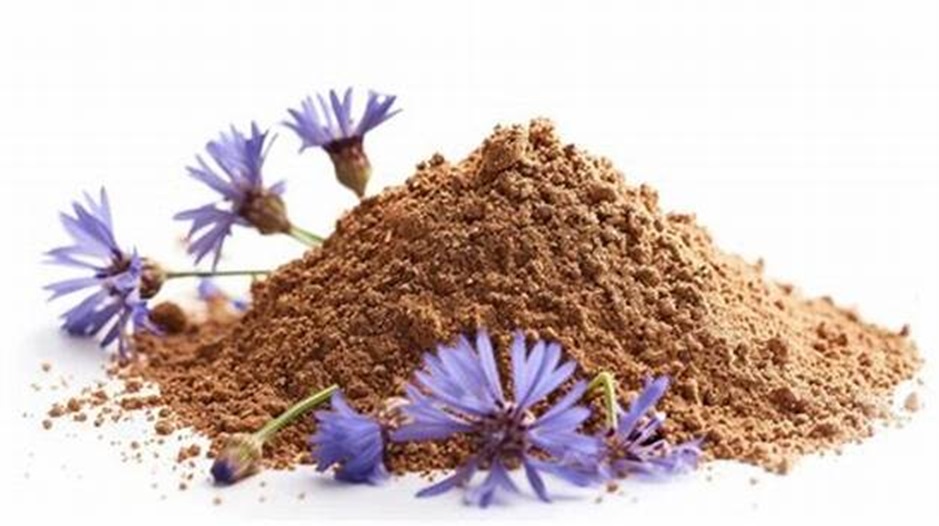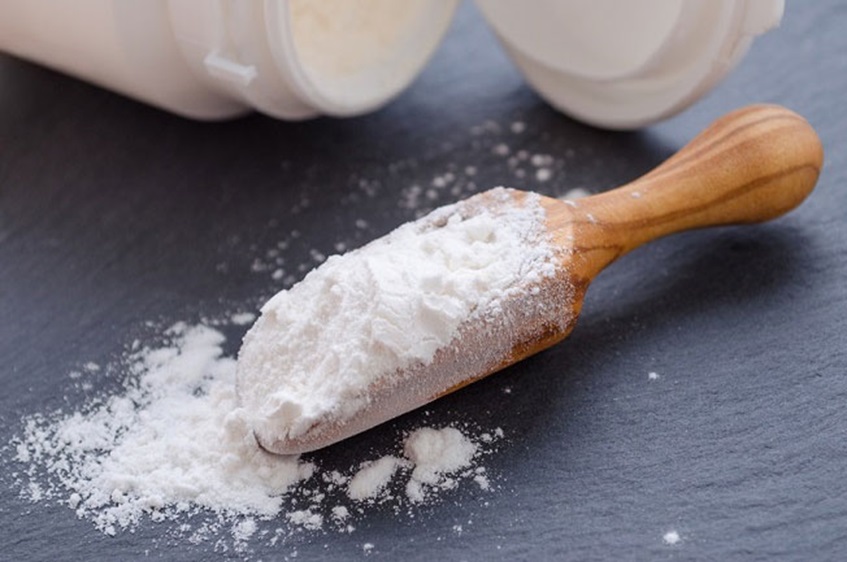We unleash your business potential by maximize the business innovation.
Send Emailinulin, jufen, Chrysanthemum powder, RAFTILINEST, RAFTILINEHP, CHICORY INULIN, 9005-80-5, 39289-43-5
Inulin is a naturally occurring polysaccharide found in many plants, including chicory root, onions, garlic, and Jerusalem artichokes. It's commonly used as a dietary fiber and prebiotic, promoting the growth of beneficial bacteria in the gut. Inulin is also used in the food industry as a fat replacer and to improve the texture of low-fat products
CAS: 9005-80-5;39289-43-5
Molecular Formula: C18H32O16
Names and Identifiers
| Name | inulin |
| Synonyms | jufen inulin 9005-80-5 14C-Inulin RAFTILINEST RAFTILINEHP CHICORYINULIN RAFTIFEED(R)IPS Inulin, carboxy-14C Chrysanthemum powder Inulin-(carboxyl-14C) Inulin from dahlia tubers, BC 1-[Bis(4-cyanophenyl)methyl]-1,2,4-triazole 4,4'-(1H-1,2,4-Triazol-1-ylmethylene)dibenzonitrile 4,4'-(1H-1,2,4-Triazol-1-ylmethylene)bisbenzonitrile 4,4'-(1H-1,2,4-triazol-1-ylmethanediyl)dibenzonitrile 4,4'-(1H-1,2,4-triazol-1-ylméthanediyl)dibenzonitrile 4,4'-(1H-1,2,4-Triazol-1-ylmethandiyl)dibenzolcarbonitril |
| CAS | 9005-80-5 39289-43-5 |
| EINECS | 232-684-3 |
Physico-chemical Properties
| Molecular Formula | C18H32O16 |
| Molar Mass | 504.43708 |
| Density | 1,35 g/cm3 |
| Melting Point | 176-181°C |
| Specific Rotation(α) | D20 -40° (c = 2) for the anhydr |
| Water Solubility | Soluble in water. |
| Solubility | Soluble in hot water and solutions of dilute acids andalkalis; slightly soluble in cold water and organic solvents. |
| Appearance | Solid |
| Color | White to Off-White |
| Merck | 14,5004 |
| Storage Condition | Store at RT. |
| Stability | Stable. Incompatible with strong oxidizing agents. |
| Sensitive | Hygroscopic |
| MDL | MFCD00131407 |
| Use | For diagnosis of renal function and preparation of culture medium |
Risk and Safety
| Safety Description | 24/25 - Avoid contact with skin and eyes. |
| WGK Germany | 3 |
| RTECS | 232-684-3 |
| FLUKA BRAND F CODES | 3-10 |
| TSCA | Yes |
| HS Code | 11082000 |
Introduction
One of the storage polysaccharides. Mainly found in Compositae plants, for example, the tuber of Jerusalem artichoke, the tuber of Tianzhu peony (Dali chrysanthemum), and the root of thistle. It is contained in the protoplast of the cell in colloidal form. Unlike starch, it is soluble in warm water and does not react with iodine. It can be hydrolyzed by acid or inulinase (inulase) to mainly produce D-fructose.
Reference Information
| Introduction | inulin, also known as inulin, is produced from D-fructose via β-(2,1) the chain polysaccharide linked by glycosidic bonds often contains a glucose group at the end. Inulin is beneficial to human health: it helps to control blood sugar level, is suitable for diabetics to eat, and does not cause blood sugar fluctuation, reduce the amount of cholesterol, control blood lipids, reduce the harm of cardiovascular disease, the proliferation of intestinal bifidobacteria, prevent intestinal infections, promote the absorption of minerals, prevent constipation; In the food industry, inulin has been successfully used in the fields of dairy products, bread, candy, beverage and seasoning. |
| efficacy and function | inulin is of great benefit to human health: it helps control blood sugar level and is suitable for people with diabetes, does not cause blood sugar fluctuations, reduce the amount of cholesterol, control blood lipids, reduce the harm of cardiovascular disease, the proliferation of intestinal bifidobacteria, prevent intestinal infections, promote the absorption of minerals, prevent constipation, in the food industry, inulin has been successfully used in dairy products, bread, candy, beverages and seasoning areas, such as inulin hygroscopic, in food processing to use this to delay the evaporation of water, prevent off-flavor products, extend the shelf life and shelf life of food, in China, with people's attention to health, the development and utilization of inulin has gradually become widespread. |
| preparation | a method for synthesizing inulin by high-temperature resistant enzymatic method, which uses Bacillus subtilis as a fermentation strain to produce high-temperature resistant inulin synthase, then the high temperature resistant inulin synthase is used to produce inulin with different DP values according to needs. The steps of the method are as follows: (1) cultivating bacillus to produce high temperature resistant inulin synthase: after high temperature sterilization, the fermentation raw material is introduced into the seed tank and the fermentation tank, and the Bacillus strain TKB28 is inoculated in the shake flask and the seed tank, under the condition of stirring with sterile air, the fermentation is carried out at 37 ℃ for about 16 hours, then the bacteria and fermentation broth are separated by centrifugation, and the inulin synthase solution is concentrated by ultrafiltration membrane with molecular weight of 20000, the enzyme activity of the obtained inulin synthase concentrated solution was measured. The fermentation raw materials include: 200g of sucrose; 50g of peptone; 2g of inorganic salt. Sucrose as carbon source, peptone as organic nitrogen source, supplemented by a small amount of inorganic salts to form fermentation raw materials. (2) synthetic inulin reaction: under the condition of sucrose solution with substrate concentration of 20% and temperature of 70 ℃, high temperature inulin synthase is added at the dosage of 1-1.5U/mL, and the initial pH value is 5.5, when the sucrose concentration was less than 5% after 8 hours of incubation, the pH was adjusted to 7.0, and the sucrose concentration was maintained at 5-10% by adding sucrose by flow, and the flow was stopped after 12 hours; When the reaction was carried out for 4 hours, the solution was mainly composed of inulin and glucose with DP value of 9-12 and a small amount of sucrose. When the reaction was completed after 12 hours, the solution was mainly composed of inulin and glucose with DP value of 21-25; (3), impurity removal and milling: After the end of the reaction solution through microfiltration, ion exchange resin to remove a small amount of insoluble material, ash, and pigment, and then through the nanofiltration membrane to remove glucose and a small amount of sucrose, the purity of inulin was more than 95%, and finally high purity inulin was prepared by spray drying. (4) step (2) synthesis of inulin the reaction was completed after 4 hours, and the resulting reaction solution was subjected to step (3) for impurity removal and pulverization to obtain inulin having a DP value of 9-12 and a purity of 95% or more. (5) step (2) synthesis of inulin the reaction was carried out for 12 hours and then the reaction was terminated. The obtained reaction solution was subjected to step (3) for impurity removal and pulverization to obtain inulin having a DP value of 21-25 and a purity of 95% or more. |
| consumption | ≤ 15g/day |
| applicable food category | scope of use: all types of food, excluding infant food |
| approval date | 2009-03-25 |
| Announcement No. | No. 5 of the Ministry of Health, 2009 |
| announcement title | Announcement of Ministry of Health on approval of inulin and polyfructose as new resource food |
| Trait | white powder |
| Inulin (mixture of fructose polymers, degree of polymerization range 2-60) | >86.0% |
| Other sugars (glucose fructose sucrose) | <14.0% |
| Moisture | ≤4.5% |
| Ash | ≤0.2% |
| Use | biochemical study; Culture medium; Renal function diagnosis (chrysanthemum glucose tolerance test; check the excretory function of glomerulus food processing, functional health food. First, inulin can reduce the blood sugar value, dilute the blood sugar concentration two, digestion and defecation function enhancement, the treatment of constipation has odd effect three, metabolism function enhancement, rapid recovery of burns and other injured wounds biochemical studies, medically used to test the glomerular filtration capacity of the kidney [clearance]. |

